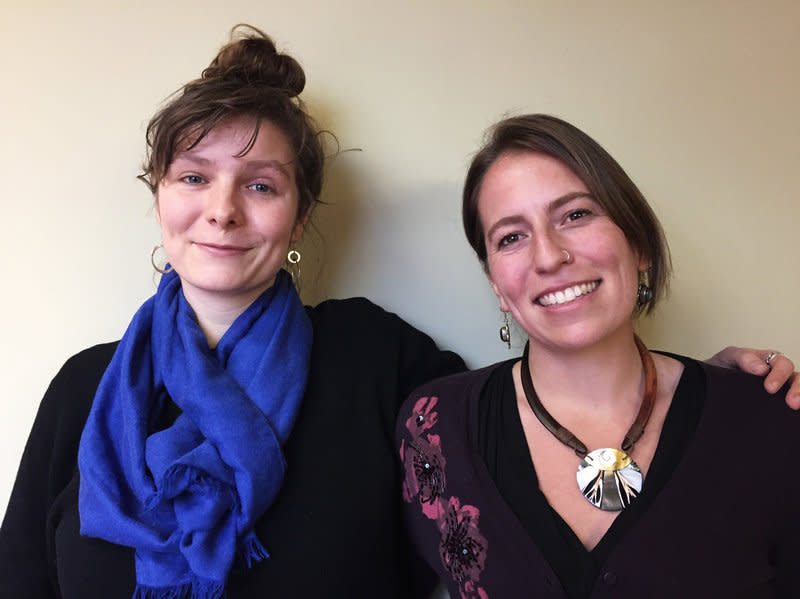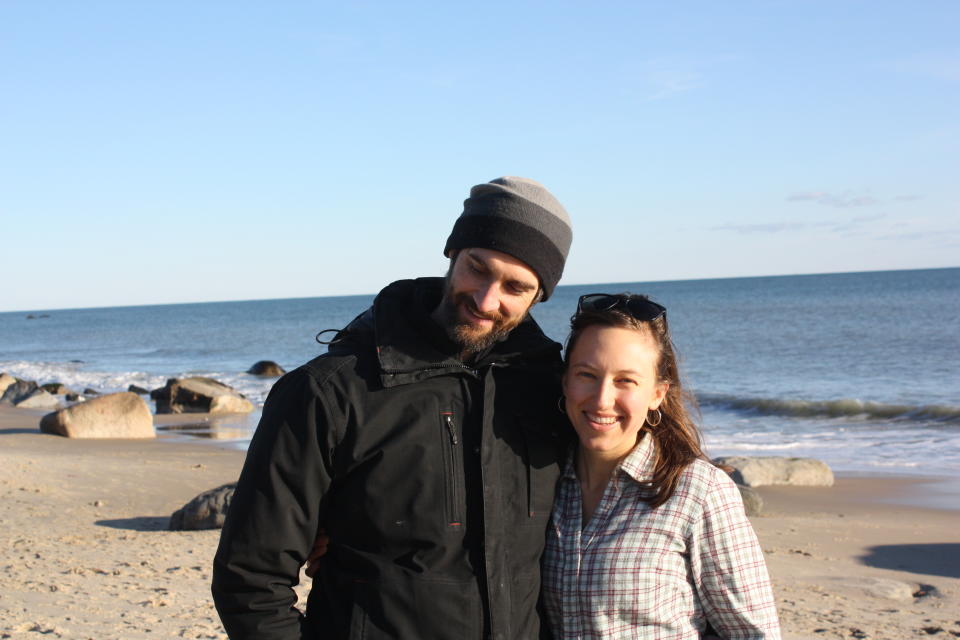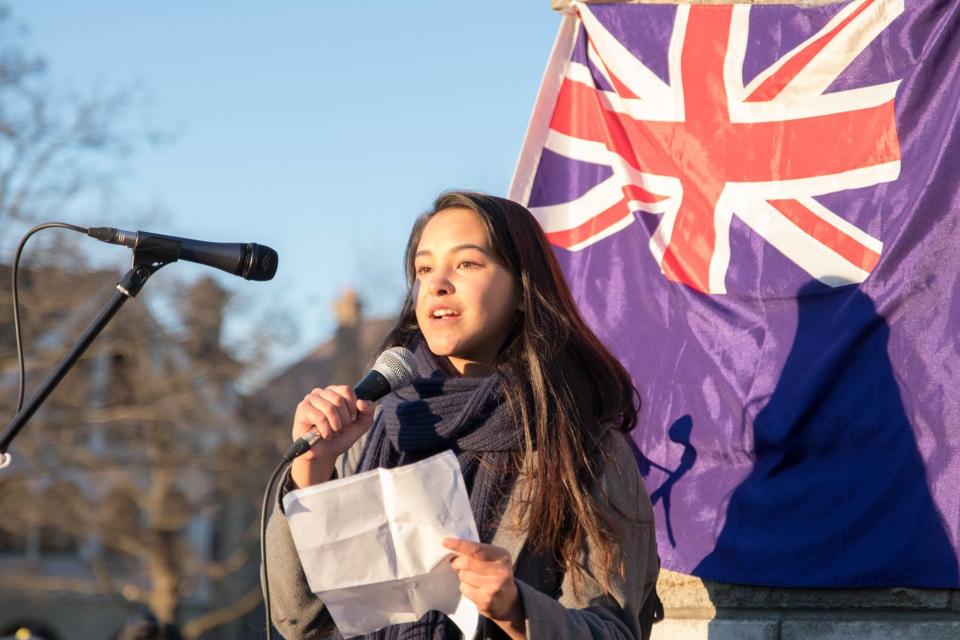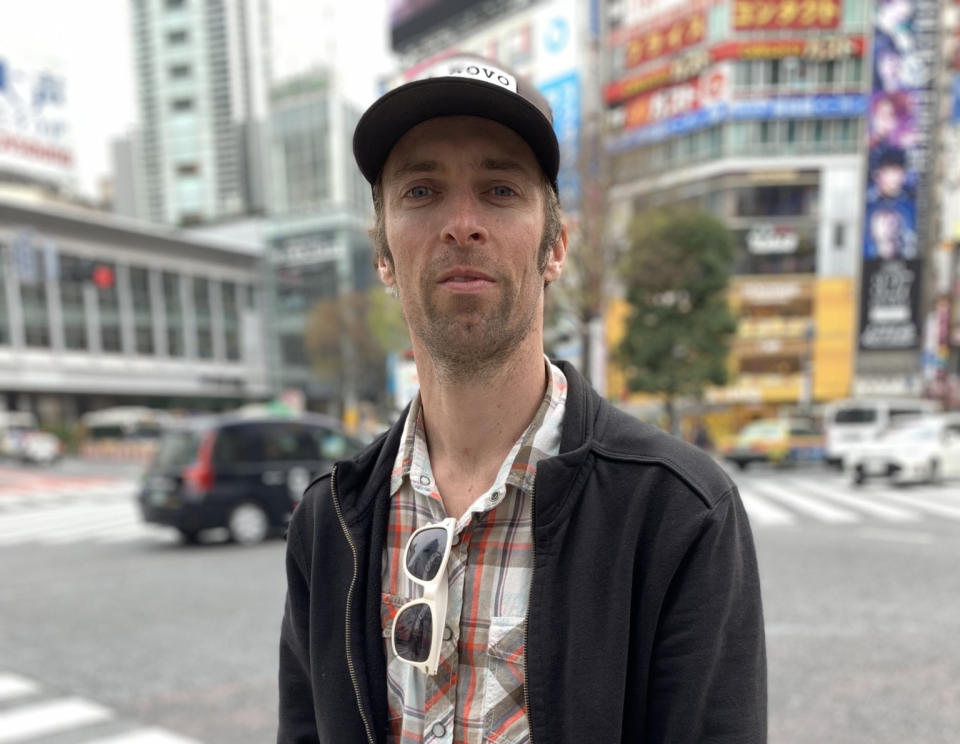'Barometer of despair': Birthrate falls as millennials fear climate apocalypse
Marisa Polowitz loves children. She worked as a nanny before embarking on a career in technology, and she considers herself a “nurturing person.” Now 34, she long assumed she would become a parent.
But as she looks around at her life — in Nashville, where she lives, in the nation and the world — she has found herself wondering “do I want to have a kid who I hand this world off to?” Rather than visions of raising up children, educating and guiding them, Polowitz’s thoughts — “nightmares,” she says — are of having to protect that child in a world “devastated by the climate disaster.”
“Within the past couple of years, I have started to feel this ambient existential dread about the state of things,” she says.
She is not the only one. Ask a millennial, ages 23 to 38, and you find the doubts. The U.S. birthrate is currently at its lowest in 32 years, with 2018 being the fourth consecutive year of decline. Usually births increase at times of economic stability, so these latest numbers have led demographers to wonder what else is on prospective parents’ minds.
“The birthrate is a barometer of despair,” Dowell Myers, who studies this data at the University of Southern California, concluded when the latest numbers were released earlier this year. “Not a whole lot of things are going good, and that’s haunting young people.”
On the list of “not good things” (lack of long-term job security, mountains of debt, the likelihood today’s children will not do as well economically as their parents), the climate crisis, with its specter of droughts, famines, fires and floods, is near the top. A poll by the Washington Post and the Kaiser Family Foundation in September found that 68 percent of respondents ages 18-29 say they are “afraid” of the effects of climate change, and 63 percent of teen respondents believe future generations will be harmed a great deal.
It is a fear that was expressed by freshman congresswoman and Green New Deal author Alexandria Ocasio-Cortez earlier this year during an Instagram live stream from her kitchen: “There’s scientific consensus that the lives of children are going to be very difficult, and it does lead, I think, young people to have a legitimate question: Is it OK to still have children?”
In more than a dozen interviews with young adults who are wrestling with whether or not to become parents, they all said the question weighed on the minds of their peers. There are Facebook groups dedicated to the subject, online pledges to remain childless until governments take concrete steps to protect the planet, and house parties bringing millennials together to discuss their complicated feelings.
Meghan Kallman, a sociologist who studies how social movements succeed or fail, and Josephine Ferorelli, a climate activist and writer, founded one such group, Conceivable Future, in 2014, and it has held house parties in 16 states, where guests film their “testimony” about procreating in a disrupted climate to post on the group’s website.

“When we started this, the main thing we heard was relief — ‘Oh, my God, I always worry about this but I thought I was the only one,’” Kallman said. “But five years later I can tell you that this is a very mainstream conversation,” she says. “The predicted global changes are becoming everyday reality, and people won’t make family planning decisions without considering what is to come.”

For Camila Thorndike, 32, it is a matter of math. Specifically, it’s the x and y axes on the “hockey stick graph” that she first came across in a high school science class and has watched “come true in real life.”
The graph is so-named because it looks like a hockey stick, long handle lying on the floor, short blade pointing up. That handle is the relatively constant temperature of the earth going back at least 1,000 years, and the upward sweep is the spike in temperature since the industrial age. Global temperatures have increased 1.8 degrees C in that time and are now projected to rise decidedly more than that (projections vary from 2 degrees to upward of 5 degrees) by the end of this century.
Recently married and completing a graduate degree in public administration at Harvard University’s Kennedy School of Government, Thorndike says the graph now feels personal. She and her new husband are deciding where to move when she graduates based on where there is likely to be “relative climate stability.” She would love to return to Oregon, where she grew up, but it is now in “a new region called the smoke belt,” she says, with summer fires creating air quality so toxic that residents have begun wearing “hazmat-level masks.”
“The Northeast has a better water profile than the West,” she says. “But the East also has a higher risk of flooding and mold. Pick your poison. In a world of fire and floods, maybe floods are better?” At the moment she is leaning toward “a house in Vermont with a garden where I can grow my own food, because it will have warmed sufficiently for that.”

Will there be children in that house and garden? “That’s the ethical question that keeps me up at night,” she says. “I have always been someone who enjoys children and loves the idea of a family, and that’s why I have wrestled with this, because my logical mind and the facts of the future I can see bearing down on us are not supportive of the life I would want for them.”
Katherine Fisher, 38, is also doing the math. Her work at a nonprofit that studies ways to reduce carbon emissions means she knows a lot of numbers, and one she has been haunted by is a prediction for her home state of Massachusetts. By the last third of this century, she says, the climate there is predicted to have flipped such that it will be possible to live without heat in the winter, but impossible to do without air conditioning in the summer. She doesn’t expect to live to see it, but the next generation will.
“It is a grisly calculation,” she says. “It makes the numbers very real.”
And Emma Lim, 18, is fearful of even more immediate predictions. Her eye is on the United Nations report that warned that the planet’s governments have only until 2030 “to stop irreversible damage” from global warming.
Lim, a pre-med student at McGill University in Montreal, who plans to become a pediatrician, says she has “grown up with the shadow of climate change looming over” her, but “when you are young you have a lot of faith and trust in your government. Mine has eroded over time.”
This past year she has spent most Fridays protesting in front of the provincial legislature in Ontario, Canada, and it was while listening to one climate debate that she realized “most of the adults giving speeches were saying things that were factually wrong. It scared me that the adults who were supposed to be in charge weren’t going to fix anything.” As she listened, a younger protester standing next to her, a girl in sixth or seventh grade, “was holding my hand and crying. I really wanted to tell her it was going to be OK, but I couldn’t,” Lim remembered in an interview with Yahoo News. “I just kept telling her I was sorry.”

She continues: “I decided then that I couldn’t have children. As a parent you’re supposed to be there for your children, protect them from the world. But there are some things you can’t protect them from. I would rather have the pain of not being a mother than have the pain of being one who can’t protect them.”
That was in early September. When she arrived back home, she built a website with a friend and created a pledge: “I pledge not to have children until I am sure my government will ensure a safe future for them.” It now has more than 5,000 signatures from across Canada, the U.S., Europe, South America and Australia.
Blythe Pepino, 33, a British activist and musician, also has a pledge. She told her partner last year that while she desperately wanted to “create a family with him,” she could not bear the thought of subjecting a child to the predicted ravages of climate change. Then she set up a group she called BirthStrike where nearly 900 people have added their signatures to her statement: “We the undersigned, declare our decision to not bear children due to the severity of the ecological crisis and the current inaction of governing forces in the face if this existential threat.”

Those who create the petitions, join the groups and sign the pledges take great care to stress that they do not judge anyone who decides otherwise.
“I don’t question anyone’s decision to have kids or not have kids,” says Thorndike. “That is one of the most private, nuanced, emotional decisions you can make.”
They also understand that the ability to make the choice at all is a result of privilege. “I am a white woman who is going to a fancy school and has opportunities, and all my basic needs are met,” Thorndike continues. “There are women across history who have had very little and have wrestled with this same decision. Women have forever been making impossible choices about having families and protecting those families.”
There is recognition among those who struggle with this question that they are not all wrestling with exactly the same one. Some, like Polowitz, are struggling with the additional stress that children place on an already precarious environment. “What does bringing a human into the world do? What is that carbon footprint of that?” she says.

For others the concern is less about what a child might do to the world than about what the world might do to that child. “I picture a flood coming or a forest fire, having to pack up my house and seek asylum elsewhere and being turned away,” Lim says. “What if the air isn’t clean and my children struggle to breathe? What if there’s food insecurity, malnutrition? If my baby is sick but hospitals are full of people fleeing even worse conditions?”
Thorndike, in turn, worries about her own limitations. “If I have a baby then the energies I will need and want to give toward that baby will make me less able to help others in need, to work for the global good,” she says. “You only have so many hours in a day, you can only get so much sleep.”
Her husband, she says, sees the same glass as half full. “He believes that having a child of your own gives you a stake in the future and an added reason to fight to save it,” she says. “He is by nature an optimist.”

Logan Miller is tired of being told he will change his mind.
He has not felt it safe to bring children into an environmentally uncertain world for as long as he can remember. As an adolescent, he worried about “depleted resources and overpopulation,” he says, and as a young adult “global warming.”
When he was 22 he was talked out of a vasectomy by his doctor, who warned that he was too young to be certain of such a decision. Over the next 15 years, he ended two serious relationships with women who wanted children, and after that he began to raise his plan not to have kids on the first date. Last year, at age 37, he did have a vasectomy. He met the woman he is currently dating that same day.

“I was still hobbling around from the procedure, so it was a good way to bring up the subject,” he says. She too does not want to bring children into a world whose continued existence “is uncertain at best,” he says.
Fisher, on the other hand, has changed her mind. Or, more accurately, she reached a decision that surprised her. “For most of my life I was planning not to have children,” she says. “It was an issue of conscience for me, because having a child dwarfs anything else I might do. I can ride a bike and eat vegan for the rest of my life but having a child just erases that.”
But then two things changed. First, she married a man who “I could imagine being a parent with.” Second, she began to feel that not becoming a parent felt like “giving up” while being one “was an act of wild hope that there will still be an earth to live on, there will still be human beings. Life will be really different but life will continue.”
Kallman, who still has not decided definitely, says that the very decision process, not a specific outcome, is what sets this generation apart. It is their version of the Depression, the Cold War, the overpopulation movement that gave some among their parents and grandparents reason for pause. And it clarifies the risks of climate change in personal ways.
“Social movements are not successful when people cannot understand what they are fighting for,” she says. “The climate movement until very recently had a difficult time connecting to what mattered about the fight. Carbon parts per million and pictures of polar bears don’t motivate people the way their own futures do.”
Polowitz, who is applying to law school and assumes that will close the door on her window to have a biological child, agrees that “this question of what my generation leaves to the generation immediately after us will come to define our generation.”
And Thorndike, who says she is still “mired in ambivalence,” says that is the very question that will finally tip her decision one way or the other: “How would I answer my child in 10 or 20 years’ time, when they ask me, ‘Why am I here? Did you know this was going to happen? What did you do to stop it?’”

_____
Download the Yahoo News app to customize your experience.
Read more from Yahoo News:


